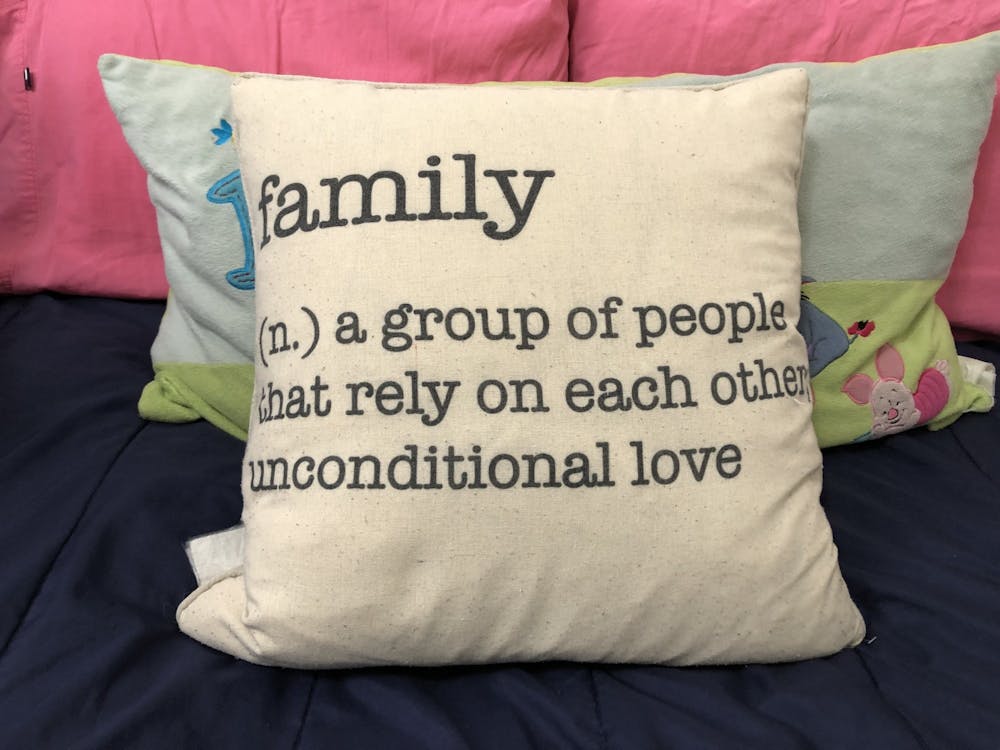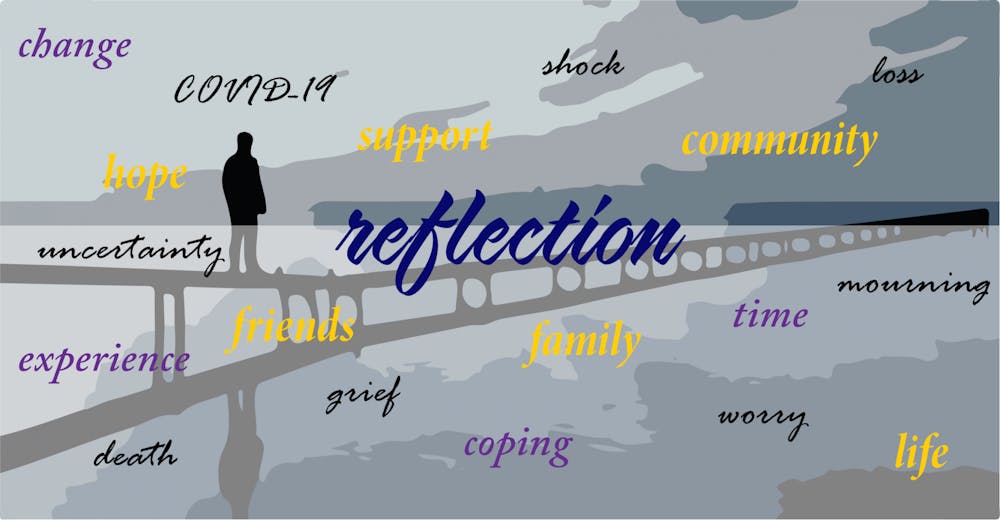CINCINNATI, OHIO
As COVID-19 case counts and deaths continue to climb in the United States, mourning is often a constant companion. By now, many of us likely know at least one person who has been infected with COVID-19 and perhaps one that has died as a result. Beyond mourning for the horrifying loss of so many lives, we also grieve for the loss of habits and ways of life, of traditions and social contact. Hugging grandparents, going out with friends, and even smiling at people we encounter at the store unhindered by masks have all been halted for the foreseeable future.
Accepting the loss of our pre-COVID lives in this new reality is difficult, something that I have struggled with over the past few months. As is true for many others, the pandemic turned my world upside down. Learning was restricted to a computer screen, summer plans were overturned, movements were restricted to a 10-block radius, and I was stuck at home with my two younger sisters and my parents for a seemingly never-ending period of time. I experienced the shock and grief that accompanies a life lost, and I continue to experience the constant, nearly paralyzing worry for the safety and well-being of loved ones.
Understanding this constant barrage of information, with the pain and anxiety that is carried along, can feel overwhelming. While we share this common experience, it feels deeply personal as we grapple with our own thoughts, fears, and choices in the wake of this national — and global — calamity. At times, it seems like the country is climbing a mountain only to discover that this mountain is a steep cliff instead, millions of feet of sheer rock towering over the bodies and worries left behind by COVID-19.
So when the world is at a standstill, leaving us all feeling isolated and disconnected as we try to keep ourselves and others safe, I find myself working harder than ever but also constantly stopping in my tracks, reflecting on what is happening and what is meaningful. Ironically, pandemics offer much time for self-reflection as we find ourselves in a period of limbo between the past and our present new “normal.”
This limbo began for me when I came home, though it was not extremely noticeable until coursework was no longer a constant, overbearing presence that loomed over my every action. As one not accustomed to spending so much time in my house, I began to feel like a stranger in my own home by the second week of summer. This odd sensation was so difficult to put into words. It was almost like I was lost in the home that I spent most of my life growing up in.
My friends were there to converse with me about the ongoings of the world and its reverberations for our communities, but my siblings — and the rest of my family — were the ones that helped me accept and adjust to this new reality at home. Yes, they would constantly barge into my room, incessantly talking about anything and everything as they pestered me about spending time with them outside my room. But, as I reflect on this summer, I realize that it was these persistent requests, even begging, that would force me to leave my anxieties and stress behind.
It was through our times spent together, watching random and often banal TV shows or debating silly topics ranging from the optimal amount of spice to mix into noodles to whether the apple that appears on a book cover is actually the fruit or a glass apparition, that I began to find my own peace. I was able to manage the constant worry, accept it, and even heal. And suddenly, I found myself laughing and smiling more often at my sisters’ crazy antics as they pranced around dressed up with false accents and made-up backstories.
As I reflect on this pandemic and the time I have spent at home, I have come to appreciate, now more than ever before, the importance of self-care and human connection, which have become intertwined. Maintaining relationships, participating in activities with friends and family — even if they are virtual — and consciously making the effort to enjoy little bits of every day have become the cornerstone of my everyday life. I have relearned how to lean on my family and friends and ultimately accept the loss brought on by the pandemic.

Harsimran Makkad / The Daily Princetonian
The pillow that my parents gifted me with when I first moved to campus in the fall of 2018.

On my bed lies a pillow that my parents gave me when I was departing for college for the first time. It is a simple beige, not colorful and bright like I tend to favor. But the message it relays resonates now more than it has ever done in the past: “family (n.) a group of people that rely on each other; unconditional love.” No matter what lies ahead, family — whether it includes our parents, guardians, siblings, other biological or adopted relatives, friends, and/or members of the community we live in — will help us keep trudging along.
It is because of my family, particularly my siblings, that I continue to have hope during this time of great loss and mourning. In a not-so-distant future, we will be able to hug our grandparents, go out with friends, and see each other’s unhindered smiles. And for now, this is more than enough.








